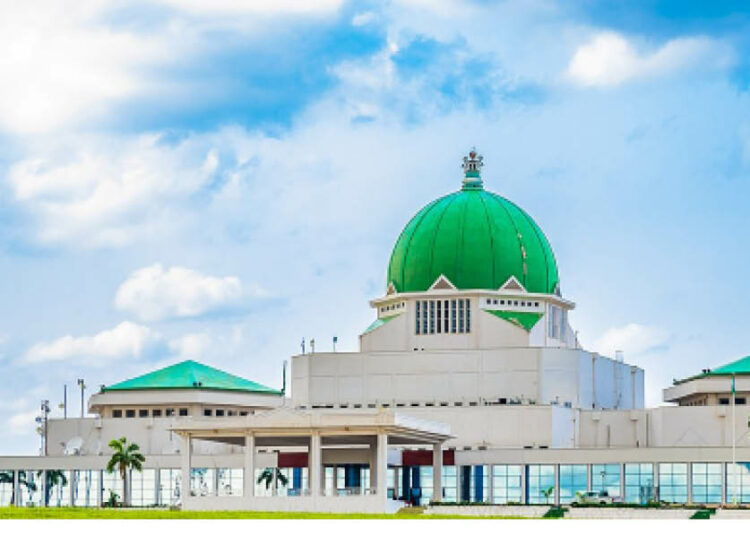The National Assembly and heads of ministries, departments, and agencies (MDAs) debate budgetary and fiscal policies or oversight yearly, a core constitutional mandate of the legislature.
The back-and-forth between the agents of the executive and legislative arms of government has become so deep in the polity that the daily businesses of the MDAs have been undermined through undue interference, frequent summoning, interrogation, criticism, and bashing of the MDAs for what could easily have been addressed in a more dignified and democratic process.
From oversight visits, appearances for budget defence, and explanations of how past appropriations and allocations are expended, it has been a nightmare for the MDAs and their heads.
Particularly worrisome is the frequent summoning of heads of MDAs by the two arms of the National Assembly for what could have been treated through memos and simple clarifications by the affected parties.
Sometimes, MDAs are separately summoned by the two chambers over issues that the joint committees of the legislature could have handled simultaneously.
The National Assembly’s frequent summoning of MDAs on national issues has led to a breakdown in communication and a lack of trust between the two arms of government.
Often, the tune of such summons is laced with threats of not approving their budgets, issuing a warrant of arrest for being unable to keep particular dates, and sending representatives when inevitable.
Some heads of MDAs are often required to appear before the parliament up to six times in a year. This frequency may have led to the current situation, where the officials no longer honour the invitations.
In some cases, MDAs’ heads are ridiculed, insulted, abused and asked questions beyond the scope of their summons and jurisdictions.
The summons have become so frequent, and the intent is unclear, even President Bola Ahmed Tinubu had to declare them distractive and affecting the effective performance of the MDAs.
He added his voice to the matter in March last year while breaking the Ramadan fast with the Speaker of the House of Representatives, Hon. Tajudeen Abbas, and other members of the lower legislative chamber’s leadership cadre.
The president said while oversight is essential for maintaining transparency and accountability in governance, the frequent summons of heads of government agencies can affect service delivery to the people.
“I have been watching various committees summoning ministers and heads of agencies. I have complained to the Speaker about letting the poor breathe. Let these people do their job. We are not saying that you are not influential. We are not saying you cannot do your oversight,” Tinubu had said.
Almost a year after the president’s admonition, it is very clear that nothing has changed.
As a newspaper, we believe in the separation of powers and accountable leadership. We also concede that the National Assembly has the constitutional power to summon MDAs, but we are disturbed by the current approach, which lacks refinement and transparency.
This position is, however, not an exoneration of the MDAs’ heads. They have their own shortcomings and inadequacies. Some have neither capacity nor the willingness to operate by the rules of the game. Others think, feel and operate in a manner that shows that their loyalty is only to the president.
Still, many perceive their appointments as a call to serve personal and ethnic interests. They operate with impunity, filling every available vacancy with their kinsmen and loyalists and persecuting those who see issues differently. They break the extant laws, breach job quotas, and abuse public service financial regulations, among other things
The National Assembly cannot afford to ignore such flagrant abuse of office.
Therefore, we advise that the legislature can do its job without being antagonistic and draconian in its approach.
We insist that lawmakers avoid acting as judges, issuing threats, condemnations, and warrants of arrest against members of the executive arm perceived as disrespectful or unyielding. Such actions can be seen as intimidation and undermine the collaborative spirit necessary for effective governance.
On the other hand, we appeal to the MDAs to refrain from shunning invitations from the National Assembly. They should be more proactive and prepared to answer any summons by the legislators at any time. This requires a high level of accountability and transparency in their operations.
Establishing a more constructive and respectful dialogue is crucial to improving the relationship between the National Assembly and the MDAs. The National Assembly should provide MDAs with sufficient time to prepare for appearances, allowing for more informed and productive discussions.
Ultimately, both parties must recognise that their primary responsibility is to serve the nation’s interest and attain better living conditions for Nigerians. By working together collaboratively and avoiding confrontational approaches, they can ensure that the country moves forward positively.
As they push for good governance, it is essential to prioritise cooperation and mutual respect between the legislative and executive arms. Only through constructive engagement can they address the nation’s complex challenges and improve the lives of Nigerian citizens.





